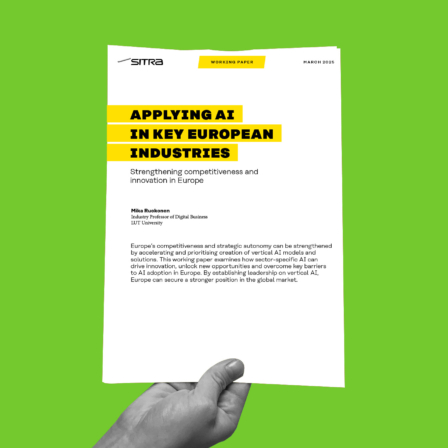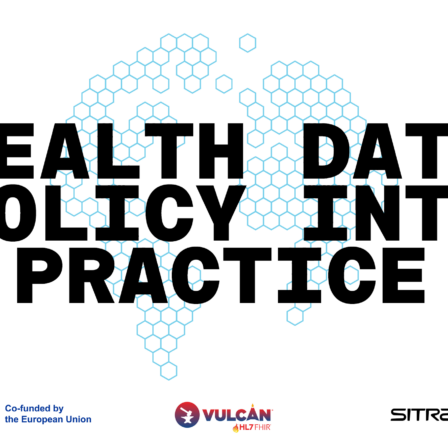Background
The Finnish Innovation Fund Sitra has participated in the European Commission’s public consultation and issued a statement on the EU’s Digital Principles.
In May, the Commission launched a public consultation on the EU’s Digital Principles to promote and uphold EU values in the digital environment. The Digital Principles aim to shape the Europe’s digital society in line with the European approach and guide the EU and its member states in bringing the benefits of digitalisation to all.
In March, the Commission set out its vision for Europe’s digital development by 2030. The vision also addressed digital principles. The Digital Principles are intended to complement existing rights that already protect and empower Europeans online. Related issues include the Commission’s proposal issued in April concerning artificial intelligence (AI), which aims to ensure that AI technology is used in a trustworthy and human-centric way in the EU.
The responses to the consultation will feed into a joint declaration on the Digital Principles by the European Parliament, the European Council and the European Commission. The aim is to issue a proposal for the declaration by the end of 2021.
The public consultation is structured in the following sections:
- access to internet services
- digital education and skills
- digital public services and administration
- digital health services
- open, secure and trusted online environment
- children and young people in the online space
- European Digital Identity
- digital products and services that respect the climate and the environment
- human-centric algorithms
- questions concerning additional principles
Sitra’s main observations
Sitra notes that fundamental and human rights are not currently realised in the digital environment. Sitra believes that the relationship between digital principles and fundamental and human rights needs to be clarified. For each principle, it should also be clearly stated from which right it derives.
The purpose of the Digital Principles is to help the different actors – be they individuals, companies or the public sector – understand what fundamental and human rights mean in the digital space. The principles also provide guidance to decision-makers, regulators and other public authorities.
The Digital Principles are not legally binding in the same manner as fundamental and human rights, but they should not be left toothless. Sitra stresses that actors must be able to monitor and assess their implementation. This will also help to dispel legal uncertainty.
Sitra considers it important that EU residents benefit from their digital citizenship and companies gain edge from a digital infrastructure and regulation based on European values.
Sitra supports the digitalisation of the public sector so that all user groups have equal and effective access to services. However, alternatives to digital services must be available to ensure that every user group’s right of access is realised.
Sitra believes that the relationship between protecting freedom of opinion and preventing the dissemination of disinformation should be clarified. Recent examples (such as the removal of leading politicians from social media platforms) have shown that the relationship between social media platforms’ operations and the rule of law is vague and is in need of clarification.
When discussing algorithmic systems, there is a need to ensure that high-quality data is used to ‘teach’ them in order to avoid unintentional biases.
The full text of Sitra’s statement can be found in the document attached to this article and on the Commission’s website.
Further information
Read Sitra’s statement on the Declaration of Digital Principles in full (PDF).
The Commission’s public consultation



















Recommended
Have some more.